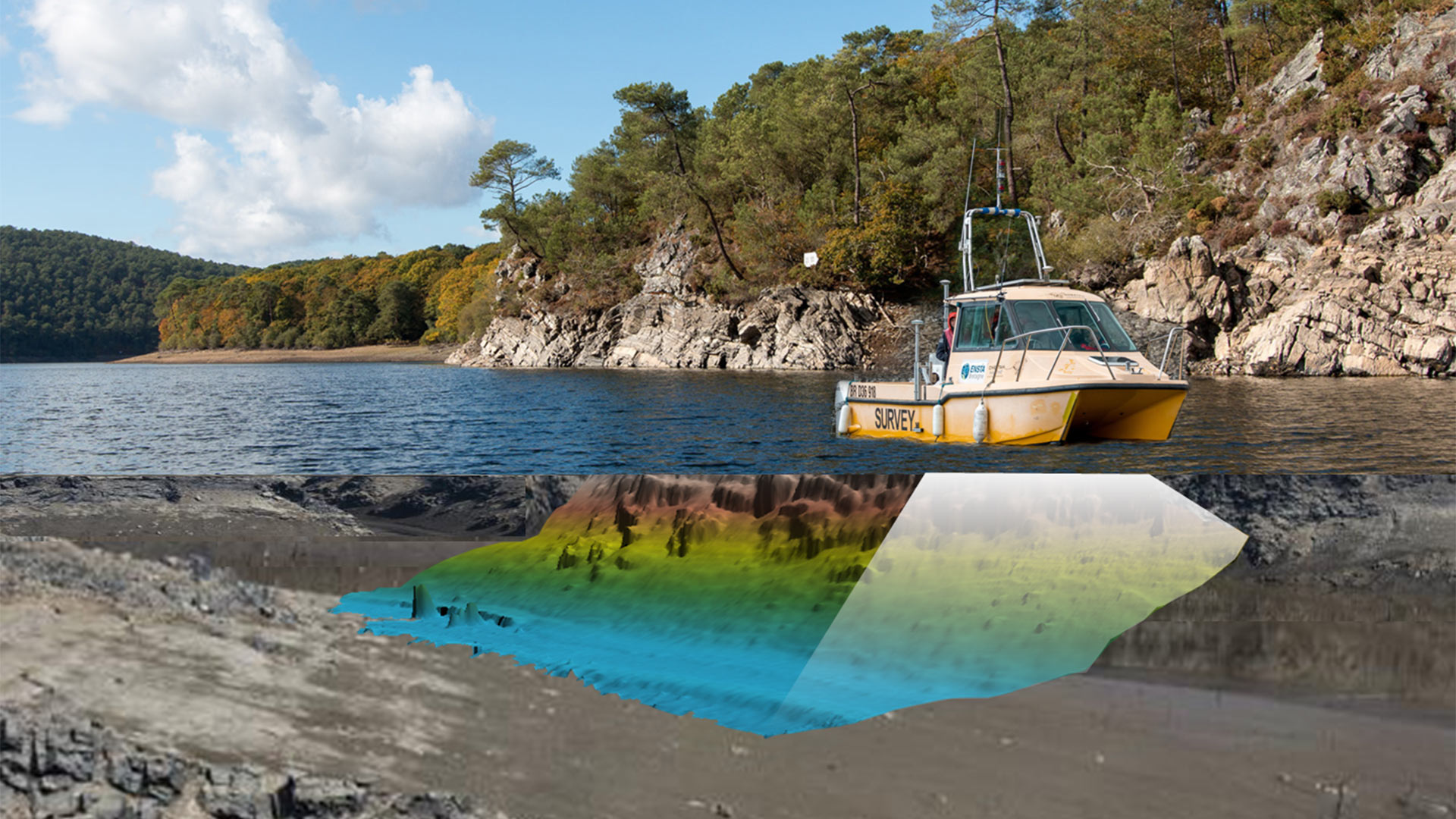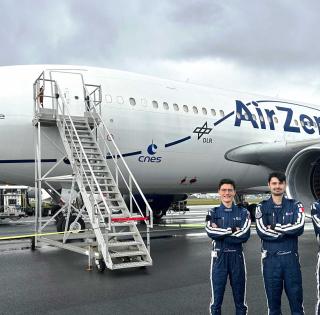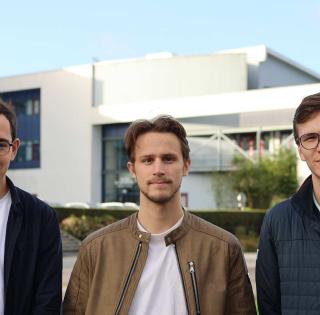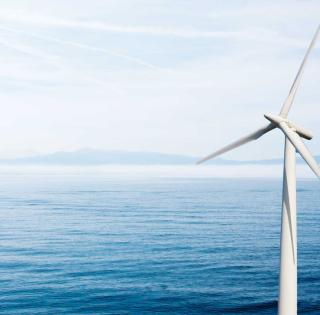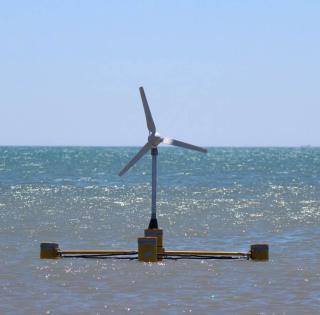
What was your study path before coming to ENSTA Bretagne ?
Before coming to ENSTA Bretagne, I studied for a degree in Computer Science at the University of Western Brittany (UBO) in Brest. However, I missed the engineering side of things, team spirit, innovation etc which led me to apply to ENSTA Bretagne through an application dossier.
I was interested in the Hydrography and Oceanography specialization, as well as the possibility of adding computer science into the mix. Thanks to a good application dossier, I was accepted directly into the second year of engineer training.
Why did you choose ENSTA Bretagne ?
I am from Brest, and I had always heard of ENSTA Bretagne. It stands out from other French engineering schools, especially for its military aspect, which is attractive.
When the teachers give their lessons, they show the applications which are possible in both the civilian and military fields : this approach is a real plus point.
Did you join any associations ?
I took advantage of the Sports Association to do boxing and climbing. That way, I met students who were not in my year.
Moreover, I was my year’s student representative for two years, which enabled me to liaise between the students and the teachers especially for the end-of-term reports.
To keep the team spirit going in my year, I regularly organized get-togethers in Brest restaurants, chosen after consulting everyone, which for example, enabled us to get together around a local dish which is not well known outside Finistere: the traditional Kig Ha Farz!
Where did you do your international mobility period ?
I did my assistant engineer internship in Barcelona, at the Marine Science Institute. I was able to apply my skills in computer science and oceanography for 3 months. My internship was on the evolution of sedimentary basins. I worked on the software which enabled the evolution of the sedimentary basins to be modeled. I had to update and improve the software with the new advances made by researchers in this field. During this internship, I was able to make my computer skills available to the researchers and in exchange, they enabled me to deepen my knowledge on sedimentology thanks to their expertise: real team work.
What did this experience bring you ?
I became more autonomous. It was a great way to progress, you had to adapt to the country and leave your usual routine behind.
Moreover, I had studied German so I didn’t know any Spanish. Yet, in Spain, not everyone speaks English and many countries have Spanish as their official language. So, I was able to pick up the basics, which was perhaps an asset in my specialty as we can be called upon to travel to those countries.
Can you tell us about your final year internship ?
Still with a view to using my computer skills in different scientific fields, Naval Group entrusted me with improving methods diagnosing the state of the equipment which makes up submarine nuclear missile launch engines. This means maintaining the equipment in good working order by exploiting a broad range of data collected by sensors. By highlighting the potential of these data, I was able to propose the implementation of a predictive maintenance system (diagnosing equipment break-down before it happens), thanks to artificial intelligence.
My viva voce enabled me to show the teachers that thanks to the basics that they give us, especially in artificial intelligence in bathymetry, it is possible to broaden and deepen this knowledge by applying it to other fields.
Do you have any advice for students who want to come to ENSTA Bretagne ?
You will need to adapt to a new environment.
There is an enormous amount of solidarity within this school, which is different from university. You need to be surrounded by good people. I found classmates who helped me with the math because there isn’t any at university.
You can revise as a team for the evaluations, you shouldn’t cut yourself off. The students are very outgoing and approachable.
What are your plans for the future ?
Continue what I have been doing : mixing an engineering outlook with my skills in computer science.
What would be ideal would be to be able to combine certain aspects of my specialization with computer science, and there are professional opportunities out there: for example, companies which develop decision support software, which combines computer programming with meteorology and cartography. Thus, I am managing my research in this field.






